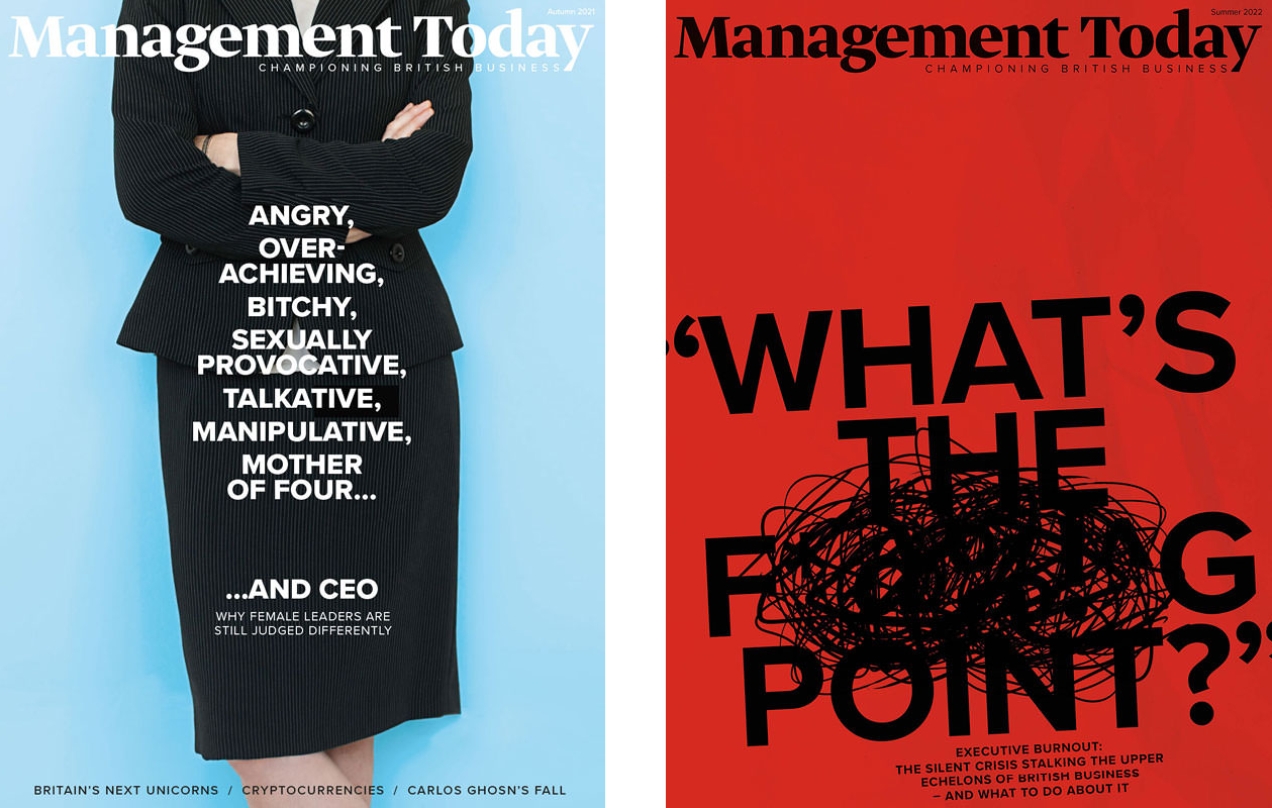Meet Kate Magee, Editor, Management Today
Kate Magee has only been in her job as editor at business media brand Management Today for just over a year, but she's already launched the title in the metaverse and published groundbreaking reports on workplace sexism and corporate burnout. She has plenty more plans for the UK's oldest business magazine - as she explains to Christian Koch.
Kate Magee is editor of Management Today. Founded in 1966, Management Today is the UK's oldest business magazine with its authoritative blend of straight-shooting interviews with corporate leaders and prescient longform features read by 58,000 readers (mainly CEOs and C-suite leaders). Magee joined the title in August 2021, after spending seven years as associate editor at ad-industry magazine Campaign and a stint at PRWeek, where she rose from editorial assistant to associate editor in just seven years (Magee: "I must have a seven-year itch"). Management Today is published by Haymarket Media and has significant opportunities for PRs to arrange interviews, or for brands to sponsor webinars, events, thought-leadership pieces and its prestigious business awards…
Having spent seven years at PRWeek, I have a lot of respect for PRs. It was my first job in journalism and gave me a broader view of the comms industry; I suspect many journalists only see the ‘media relations' part of PRs' jobs, which is only the tip of the iceberg. The PR industry is full of smart, creative, interesting people.

Journalists can treat PRs atrociously. I once phoned a journalist to get a quote for a story and he was incredibly rude - swearing at me before slamming down the phone. He called back a few minutes later to apologise, saying, "I thought you were a PR", as if that made his behaviour okay. It gave me some insight into what PRs face on a day-to-day basis.
These are exciting times to be a business editor. There are some fundamental shifts in the world of business such as the hybrid/flexible working debate, the changing role business plays in society and the need for more sustainable practices. Leadership is also undergoing a shift too: what does it mean to be a leader today during the permacrisis when everything's in flux? This is such rich, fertile ground to be covering.
Management Today was the first magazine to enter the metaverse. Earlier this year, everybody was talking about the metaverse, but I wanted to go deeper rather than running a bog-standard piece. So, in March we became the first English-language magazine to enter the metaverse by launching in [virtual world] Decentraland. It enriched our storytelling: helping make an esoteric subject become more tangible for our readers.
Around 40% of our readership are chief executives or c-suite leaders. Another 40% are senior leaders, such as divisional chiefs at large companies, entrepreneurs or senior directors of small businesses. And the remaining 20%? They're the aspiring, ambitious leaders of tomorrow.
Leadership can be a lonely place… Many bosses can't talk freely with their employees because they're either junior or there's an agenda there. It's our job to create a community for leaders and make sure they're abreast of the latest business and leadership trends. We help them do their jobs better and not get caught out looking silly because they don't know what's going on.
There's a feeling in society that if you take a top job with a large salary, it precludes you from public sympathy. It results in these leaders not discussing personal issues or admitting they could be struggling, which isn't healthy.
Leaders are suffering burnout at record rates. They had a hard time during Covid, dealing with some of the same issues (such as home schooling) as their employees, while supporting and leading their teams and developing strategies during a difficult period for businesses. Our recent ‘Leadership burnout: Inside the silent epidemic' report (coverline: ‘What's the f***ing point?') addressed this: we even had a couple of chief execs talk to us about their breakdowns. It was a hard-hitting story which sparked an essential debate.
Management Today has always had a reputation for promoting women in business. It's a tradition I've carried on as editor: one of my first big features was a deep-dive into how female leaders are judged differently. Dame Moya Greene, who was one of the FTSE100's few female bosses as head of Royal Mail, told me one chairman recently told her, "I think you'd do better if you didn't speak so much". It shows that even in top positions, women still face challenges.
Today's bosses are also required to be more empathetic, but too many get it wrong. Just look at the marketing CEO in the US (Braden Wallake) who posted a crying selfie to social media after making some staff redundant. He got flamed for it. He was probably trying to be an ‘authentic leader', but the post felt hollow. It's a minefield.
Our ideal interviewee is… a leader of a FTSE100 firm who is doing something progressive and interesting… We don't just want to talk about business in the way newspapers do. We want to look at the human aspect of leadership, the toll it's taking, a CEO's business challenges and how they've overcome them. Our interviewees are speaking to their peers who want to learn from their experiences.
Our ideal interview isn't… yet another corporate buttoned-up leader who parrots the company line. We've recently interviewed Guy Hands, the outspoken private equity chief, Greg Jackson, founder/CEO of the Octopus Group, and Eddie Jones, the England rugby coach. These are people ready to share their opinions and are very candid about the challenges all leaders face.
Our readers love a good turnaround story. A few months ago we featured Dev Pragad who turned US current affairs magazine Newsweek from a financial blackhole haemorrhaging readers into a profitable media organisation.
Management Today loves to cover companies attempting unusual things, such as the business that has got rid of hierarchies and managers, or a company that has given staff a four-day week. We'd also like to feature more ‘how-to' content. When PRs come to us with stories, it would be great if they have lessons other leaders can learn from.
I'm very ambitious for the title. We have several plans afoot, including the imminent launch of a podcast. Ultimately,I want to ensure that Management Today continues being useful and entertaining for our readers.



